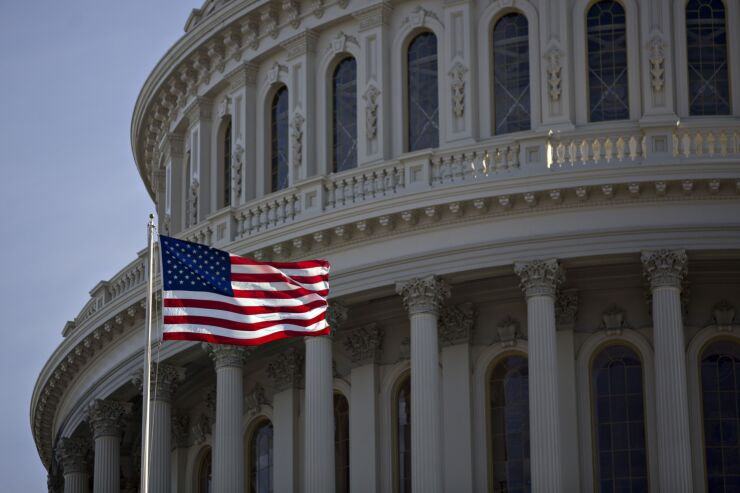The Financial Accounting Standards Board is at it again.
The counterproductive and harmful mark-to-market accounting rules imposed by FASB led to the near-collapse of the global economy during the financial crisis, and to the $700 billion Troubled Asset Relief Program.
Now, FASB wants to require banks to adopt another form of mark-to-market accounting rules known as the Current Expected Credit Losses standard, or CECL.
CECL requires banks to estimate their credit losses over the life the loans, and book the losses upfront. Thus, a bank that makes 30-year mortgage loans would have to estimate and book its losses on that portfolio on day one.

This policy is terribly wrongheaded. And we fervently disagree with a recent
Lawmakers recently delayed the CECL standard for certain banks as part of its response to the coronavirus pandemic and concerns about the financial constraints that implementation would create amid a crisis.
It is essential that all bank regulation be countercyclical. CECL is the opposite.
In good times, banks will be unrestrained in their lending because their models will underestimate probable losses. In bad times — like we are in right now — the models will demand excessive capital and reserves, causing banks to withdraw from lending at the worst possible time, when it’s needed most.
The larger banks have already implemented CECL, while the smaller banks received a little more time to comply. The delay granted by Congress for the smaller banks speaks volumes about what is wrong with CECL.
If CECL were not hurtful to bank lending in troubled times, lawmakers would not have further delayed small-bank compliance. Not only was Congress spot-on correct in delaying implementation of the CECL for small banks, it should immediately take whatever steps necessary to repeal CECL’s application to larger banks.
Tom Brown, a veteran bank stock analyst and hedge fund manager, recently pointed out CECL’s impact on two of the nation’s largest banks, JPMorgan Chase and Bank of America.
At the end of 2019, Chase’s loan loss reserve was $14.3 billion, “and not a single analyst or investor questioned its adequacy,” Brown said
Chase then adopted the CECL standard Jan. 1, resulting in a 30% increase in its loan-loss reserve, by $4.3 billion.
“Then in March, the global economy stopped in its tracks, and JPMorgan had to estimate the lifetime losses in its loan portfolio using an entirely different set of economic assumptions, based on what it thinks will happen in an environment that no one has ever experienced,” Brown said.
The combination of the coronavirus pandemic and CECL standard caused a 37% jump in Chase’s loan loss reserves, by $6.8 billion.
Bank of America, however, was “the best at avoiding” analysts’ questions about economic assumptions used in its forecasting, Brown noted.
The bank refused to disclose line-item forecasts, such as the assumed peak unemployment rate, because there are so many variables in its model and comparisons to other large banks would be misleading.
Home Bancshares Inc. CEO John Allison also expressed frustrations that the CECL standard was being implemented during a crisis.
“In the midst of a pandemic, with thousands of people dying and hundreds of thousand people infected, and Americans locked in their homes, the accounting clowns show up with a new circus called CECL,” Allison
It is past time for Congress to intervene and strip FASB of its self-anointed authority to dictate generally accepted accounting principles without any meaningful oversight from the government.
The FASB is a private entity, created by the accounting firms in 1973. It obtains its funding from the accounting industry. Its seven-member board is selected by the accounting industry, and it is not subject to meaningful government regulation.
This system cannot stay in place any longer. The Securities and Exchange Commission should set the accounting standards for the banking industry. There should also be a requirement that the SEC formally seek and consider the views of the public. This includes input from the accounting industry, the Federal Reserve, the Federal Deposit Insurance Corp. and the Office of the Comptroller of the Currency before adopting or amending any rules.
William M. Isaac, a former chairman of the Federal Deposit Insurance Corp. and Fifth Third Bancorp, is co-chairman of the Isaac-Milstein Group. He and his firm provide services to many clients, including some who may have an interest in the subject matter of this article. The views expressed are his own.
Howard P. Milstein is chairman of Emigrant Bank and New York Private Bank & Trust. He is also co-chairman of the Isaac-Milstein Group.





